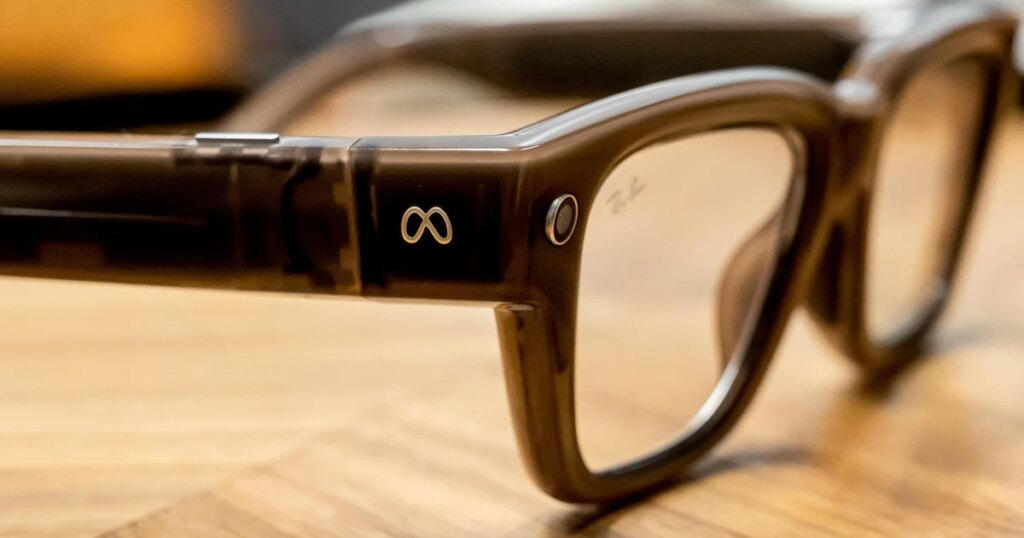The advent of artificial intelligence continues to reshape technology, with smart glasses emerging as the next frontier. Leading this charge is Alibaba, unveiling the Quark AI Glasses that allow users to seamlessly interact with their Qwen AI app. The device, designed for a variety of tasks such as internet searching, meeting note compilation, and in-store price checks, is presently available only in China, sparking discussions on the future of AI-enhanced eyewear.
| Article Subheadings |
|---|
| 1) The Features of Quark AI Glasses |
| 2) Market Competition and Comparison |
| 3) Historical Context of Smart Glasses |
| 4) Privacy Concerns Surrounding Smart Glasses |
| 5) Future Outlook for AI Eyewear |
The Features of Quark AI Glasses
The newly launched Quark AI Glasses from Alibaba combine sleek design with advanced technology, enabling various functions that promise to revolutionize how users manage everyday tasks. The device allows for direct access to the Qwen AI app with a simple button press, offering features such as internet search, note-taking, and online payment capabilities. The built-in camera is a significant highlight, allowing consumers to snap photos of products and instantly find pricing information on Alibaba’s Taobao platform.
Additionally, these AI glasses support entertainment functionalities, facilitating music playback and calendar management, thus catering to a wide range of consumer needs. Priced at 3,799 yuan (approximately $537), the glasses are currently limited to the Chinese market, reflecting Alibaba’s strategy to test consumer acceptance before broader distribution.
Market Competition and Comparison
Alibaba’s recent foray into the smart glasses market places it among a competitive landscape populated by other tech giants. Companies like Meta, Amazon, and Xiaomi are also releasing their versions of AI glasses, which are designed to serve various consumer segments. For instance, Meta’s partnership with Oakley has resulted in a product focused on athletes, priced at $399, while its collaboration with Ray-Ban aims to blend fashion with functionality.
Moreover, it’s not just tech enthusiasts who find these devices appealing. Visually impaired individuals, for example, are beginning to utilize AI glasses for assistance in daily activities. This shows that AI-enabled eyewear is attracting a broader audience beyond just early adopters.
Historical Context of Smart Glasses
The evolution of smart glasses is not a new concept; in fact, it dates back over a decade when Google launched its version, Google Glass. Initially intended to allow users to access information and record video, Google Glass faced significant challenges, not least due to its high price point of $1,500 and concerns regarding privacy and public acceptance. After repositioning the product for business utilization, Google ultimately ceased its production in 2023, marking a significant setback for the wearable technology sector.
Despite the early failures, the idea of wearable technology has persisted in consumer consciousness, and new iterations have emerged, incorporating better design and functionalities that resonate more with today’s technology-savvy populace.
Privacy Concerns Surrounding Smart Glasses
As smart glasses gain traction, significant privacy concerns arise that could hinder broader acceptance among the general public. Many of these devices can capture video and collect various types of personal data, leading to important deliberations around consent and personal privacy. Legal experts have pointed out that the ability to record without others’ explicit approval could lead to ethical questions, particularly when such videos are shared or stored.
Consumers must weigh the benefits of convenience against the potential risks of infringing on privacy rights. Given that smart glasses are often viewed as an extension of personal devices, managing how these devices operate in public spaces will be crucial to fostering trust and acceptance in the marketplace.
Future Outlook for AI Eyewear
Looking ahead, the future of AI eyewear appears promising, albeit cautious. Market research firm IDC predicts steady growth, estimating global sales of 9.4 million units in the current year, potentially rising to 20 million by 2029. Moreover, a recent survey indicated that 17% of U.S. online adults have already experimented with smart glasses, up from just 4% in 2024, indicating a growing interest in the technology.
Despite the challenges posed by privacy concerns and previous market missteps, the optimism surrounding AI-powered glasses is palpable. As technology continues to evolve and enhance everyday experiences, the embrace of smart eyewear could shift from niche appeal to mainstream adoption within the coming years.
| No. | Key Points |
|---|---|
| 1 | Alibaba launched Quark AI Glasses, integrating their Qwen AI app for various consumer functions. |
| 2 | Competitors like Meta and Amazon are also developing similar AI glasses, widening consumer appeal. |
| 3 | Past attempts at smart glasses, notably Google Glass, faced significant hurdles leading to eventual discontinuation. |
| 4 | Privacy concerns regarding surveillance and personal data collection present challenges for acceptance. |
| 5 | Market projections suggest growth in smart glass sales, hinting at a potential shift in consumer behavior. |
Summary
The introduction of AI eyewear by Alibaba marks a significant development in the realm of wearable technology. As AI glasses such as Quark enter the market, the competition expands, prompting other tech giants to innovate. However, while the potential for AI-enabled eyewear is considerable, issues surrounding privacy and consumer trust must be addressed to ensure broad acceptance and successful integration into everyday life.
Frequently Asked Questions
Question: What functionalities do Quark AI Glasses provide?
Quark AI Glasses offer a variety of features including internet access, note-taking, online payments, and a built-in camera for product pricing checks, among others.
Question: How are competitors addressing the smart glasses market?
Companies like Meta and Amazon are launching their own versions of AI glasses, targeting various demographics such as athletes and everyday consumers, to capture a larger market share.
Question: What are some privacy concerns associated with smart glasses?
Privacy issues revolve around the ability of smart glasses to capture video and personal data, raising questions about consent and the potential for unwarranted surveillance.
